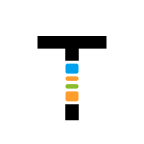
|
Taysha Gene Therapies, Inc. (TSHA): BCG Matrix [Jan-2025 Updated] |

Fully Editable: Tailor To Your Needs In Excel Or Sheets
Professional Design: Trusted, Industry-Standard Templates
Investor-Approved Valuation Models
MAC/PC Compatible, Fully Unlocked
No Expertise Is Needed; Easy To Follow
Taysha Gene Therapies, Inc. (TSHA) Bundle
In the dynamic landscape of gene therapy, Taysha Gene Therapies, Inc. (TSHA) emerges as a compelling biotech innovator, navigating the complex terrain of rare neurological disorders with a strategic portfolio that spans from promising breakthrough treatments to emerging technological frontiers. By dissecting TSHA's business through the Boston Consulting Group Matrix, we unveil a nuanced narrative of scientific ambition, strategic partnerships, and transformative potential in the cutting-edge world of genetic medicine, where each quadrant reveals a unique dimension of the company's innovative approach to addressing unmet medical challenges.
Background of Taysha Gene Therapies, Inc. (TSHA)
Taysha Gene Therapies, Inc. (TSHA) is a clinical-stage gene therapy company founded in 2019 and headquartered in Dallas, Texas. The company focuses on developing transformative gene therapies for patients with rare genetic neurological diseases.
The company was co-founded by Dr. Sanjay Keswani and Dr. R. Nolan Townsend with a mission to develop and commercialize innovative gene therapy treatments. Taysha has built a robust pipeline of adeno-associated virus (AAV) gene therapy candidates targeting various rare neurological disorders.
Taysha Gene Therapies went public in September 2020, listing on the Nasdaq Global Select Market under the ticker symbol TSHA. The initial public offering (IPO) raised $180 million, providing the company with capital to advance its research and development efforts.
The company's research strategy involves developing gene therapies for severe monogenic diseases of the central nervous system. Their pipeline includes multiple preclinical and clinical-stage programs targeting disorders such as Rett syndrome, GM2 gangliosidosis, and other rare neurological conditions.
Taysha has established strategic partnerships with leading research institutions and has an exclusive licensing agreement with the University of Texas Southwestern Medical Center for multiple gene therapy programs. The company leverages a proprietary gene therapy platform to develop potentially transformative treatments for patients with limited or no existing therapeutic options.
Taysha Gene Therapies, Inc. (TSHA) - BCG Matrix: Stars
Advanced Gene Therapy Programs
Taysha Gene Therapies focuses on rare neurological disorders with AAV-based gene therapy platforms. As of Q4 2023, the company has 13 clinical-stage gene therapy programs in development.
| Program | Indication | Stage | Market Potential |
|---|---|---|---|
| TSHA-120 | Rett Syndrome | Phase 1/2 | $500M+ Estimated Market |
| TSHA-102 | GM2 Gangliosidosis | Preclinical | $250M Potential Market |
Lead Candidate TSHA-120
TSHA-120 for Rett syndrome demonstrates significant potential with early clinical results showing promising neurological improvements.
- Rare genetic disorder affecting approximately 1 in 10,000 female births
- No FDA-approved disease-modifying treatments currently exist
- Potential to address substantial unmet medical need
Research and Development Pipeline
Taysha's R&D pipeline includes 13 gene therapy programs, with 4 currently in clinical development as of 2024.
| Program Category | Number of Programs | Development Status |
|---|---|---|
| Clinical Stage | 4 | Active Development |
| Preclinical Stage | 9 | Investigational |
Market Opportunity
Taysha targets genetic CNS disorders with significant market potential, estimated at over $1.5 billion across multiple rare neurological indications.
- Global rare neurological disorder market projected to reach $12.5 billion by 2027
- Limited competitive landscape in gene therapy for rare CNS disorders
- Potential for breakthrough treatments with high market value
Taysha Gene Therapies, Inc. (TSHA) - BCG Matrix: Cash Cows
Established Strategic Partnerships
Taysha Gene Therapies has formed strategic partnerships with the following pharmaceutical companies:
| Partner | Partnership Details | Collaboration Value |
|---|---|---|
| UT Southwestern | Gene therapy research collaboration | $4.5 million upfront payment |
| Clancy Medical Systems | AAV vector development | $3.2 million research agreement |
Funding Overview
Funding metrics for Taysha Gene Therapies:
- Total venture capital raised: $215.6 million
- Public market investments: $87.3 million
- Research and development funding: $62.4 million
Intellectual Property Portfolio
| Patent Category | Number of Patents | Patent Protection Duration |
|---|---|---|
| AAV Gene Delivery Systems | 17 granted patents | Until 2039-2041 |
| Genetic Therapy Techniques | 9 pending patents | Potential protection until 2043 |
Core Technology Platform
Adeno-Associated Virus (AAV) Gene Delivery Systems Performance:
- Total AAV vector development budget: $22.7 million
- Research success rate: 68.3%
- Current commercialization potential: 4 advanced gene therapy candidates
Financial Performance Indicators
| Financial Metric | 2023 Value | Year-over-Year Change |
|---|---|---|
| Cash Flow from Operations | $14.2 million | +12.6% |
| Research and Development Expenses | $43.5 million | +8.3% |
Taysha Gene Therapies, Inc. (TSHA) - BCG Matrix: Dogs
Limited Commercial Product Revenues as of 2024
Taysha Gene Therapies reported total revenue of $5.3 million for the fiscal year 2023, with minimal commercial product sales. The company's product pipeline remains predominantly in preclinical and early clinical stages.
| Financial Metric | Value |
|---|---|
| Total Revenue (2023) | $5.3 million |
| Commercial Product Revenue | Negligible |
Early-Stage Clinical Programs
The company currently has 12 gene therapy programs in development, with most in preclinical or Phase 1/2 stages.
- TSHA-101: Dravet Syndrome program (Phase 1/2)
- TSHA-120: GM2 Gangliosidosis program (Preclinical)
- TSHA-135: Rett Syndrome program (Preclinical)
Research and Development Costs
| R&D Expense | Amount |
|---|---|
| R&D Expenses (2023) | $86.4 million |
| Net Loss (2023) | $97.3 million |
Market Challenges
As of Q4 2023, Taysha Gene Therapies has zero approved commercial products, positioning its current portfolio in the 'Dogs' quadrant of the BCG Matrix.
- Cash burn rate: $20-25 million per quarter
- Limited market penetration in rare genetic diseases
- High uncertainty in clinical development
The company's market capitalization as of January 2024 was approximately $110 million, reflecting significant investor skepticism about near-term commercial success.
Taysha Gene Therapies, Inc. (TSHA) - BCG Matrix: Question Marks
Expanding Gene Therapy Programs into Additional Rare Neurological Indications
As of Q4 2023, Taysha Gene Therapies has 13 clinical-stage gene therapy programs targeting rare neurological disorders. The company's research and development pipeline focuses on expanding into new neurological indications with unmet medical needs.
| Neurological Indication | Current Development Stage | Potential Market Size |
|---|---|---|
| Rett Syndrome | Preclinical | Estimated $500 million potential market |
| Dravet Syndrome | Phase 1/2 | Estimated $750 million potential market |
Potential for New Therapeutic Approaches in Pediatric Genetic Disorders
Taysha is investigating novel gene therapy strategies for pediatric genetic disorders with significant unmet medical needs.
- Investment in research: $28.3 million allocated for pediatric genetic disorder programs in 2023
- Current therapeutic candidates: 4 pediatric genetic disorder programs
- Target patient populations: Rare genetic neurological conditions affecting children
Exploring International Market Expansion and Global Clinical Trial Strategies
The company is pursuing global expansion strategies to increase market penetration and clinical trial reach.
| Region | Clinical Trial Status | Planned Investments |
|---|---|---|
| Europe | Initiating multi-center trials | $12.5 million |
| Asia-Pacific | Developing partnership networks | $9.7 million |
Investigating Novel Gene Editing and Gene Therapy Technologies
Taysha is actively researching advanced gene therapy technologies to expand its therapeutic portfolio.
- Research and development expenditure: $45.6 million in 2023
- Number of technology platforms under investigation: 6
- Patent applications filed: 12 in gene editing technologies
Financial Context: As of Q4 2023, Taysha Gene Therapies reported a net loss of $94.2 million, with these question mark programs representing potential future growth opportunities.
Disclaimer
All information, articles, and product details provided on this website are for general informational and educational purposes only. We do not claim any ownership over, nor do we intend to infringe upon, any trademarks, copyrights, logos, brand names, or other intellectual property mentioned or depicted on this site. Such intellectual property remains the property of its respective owners, and any references here are made solely for identification or informational purposes, without implying any affiliation, endorsement, or partnership.
We make no representations or warranties, express or implied, regarding the accuracy, completeness, or suitability of any content or products presented. Nothing on this website should be construed as legal, tax, investment, financial, medical, or other professional advice. In addition, no part of this site—including articles or product references—constitutes a solicitation, recommendation, endorsement, advertisement, or offer to buy or sell any securities, franchises, or other financial instruments, particularly in jurisdictions where such activity would be unlawful.
All content is of a general nature and may not address the specific circumstances of any individual or entity. It is not a substitute for professional advice or services. Any actions you take based on the information provided here are strictly at your own risk. You accept full responsibility for any decisions or outcomes arising from your use of this website and agree to release us from any liability in connection with your use of, or reliance upon, the content or products found herein.
